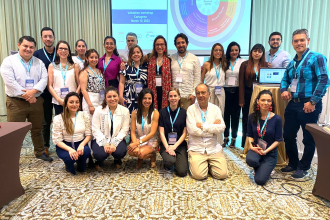
Sustainable fishing is threatened by collusion
Overfishing or the misuse of open marine resources can cause them to collapse. To cope with this problem, many governments restrict access to fishing grounds. However, corrupt practices hamper the…

Overfishing or the misuse of open marine resources can cause them to collapse. To cope with this problem, many governments restrict access to fishing grounds. However, corrupt practices hamper the…

WinEED collaborative program has raised hope for more women in Nigeria to participate in grant writing and research activities in the field of environmental economics. Over 20 women researchers in…
Please join us at this EEU seminar with Gustav Angeman from Lund University. Gustav Angeman is a postdoctoral Researcher at Lund University. He holds a Ph.D. in Economics from the University of…
Please join us at this EEU seminar with Tommy Lundgren from Swedish University of Agricultural Sciences. Lundgren is a Professor of Resource Economics and Director of the Centre of Environmental &…
Please join us at this EEU seminar with Martin Quaas from Leipzig University. Quaas is is Professor of Economics at the University of Leipzig and Head of the Biodiversity Economics Group at the German…
Please join the seminar hosted by the Economics Department at the University of Gothenburg at their "General Economics Seminar" with Ottmar Edenhofer as the invited speaker. Ottmar Edenhofer is the…

Call for proposals: Managing organizations for regional research networks to foster an inclusive and sustainable future of work FutureWORKS: Skills for a Sustainable and Inclusive Future of Work…

60 researchers from EfD and partner organizations have been working intensely for a year and a half to develop a research agenda to support a low-carbon transition and gender equity in the Global…

We hope you will join us on Tuesday, 2 May at 9:00am EST for an exciting webinar Business Research for Africa by Africans, co-hosted by the Global Business School Network and African Academy of…